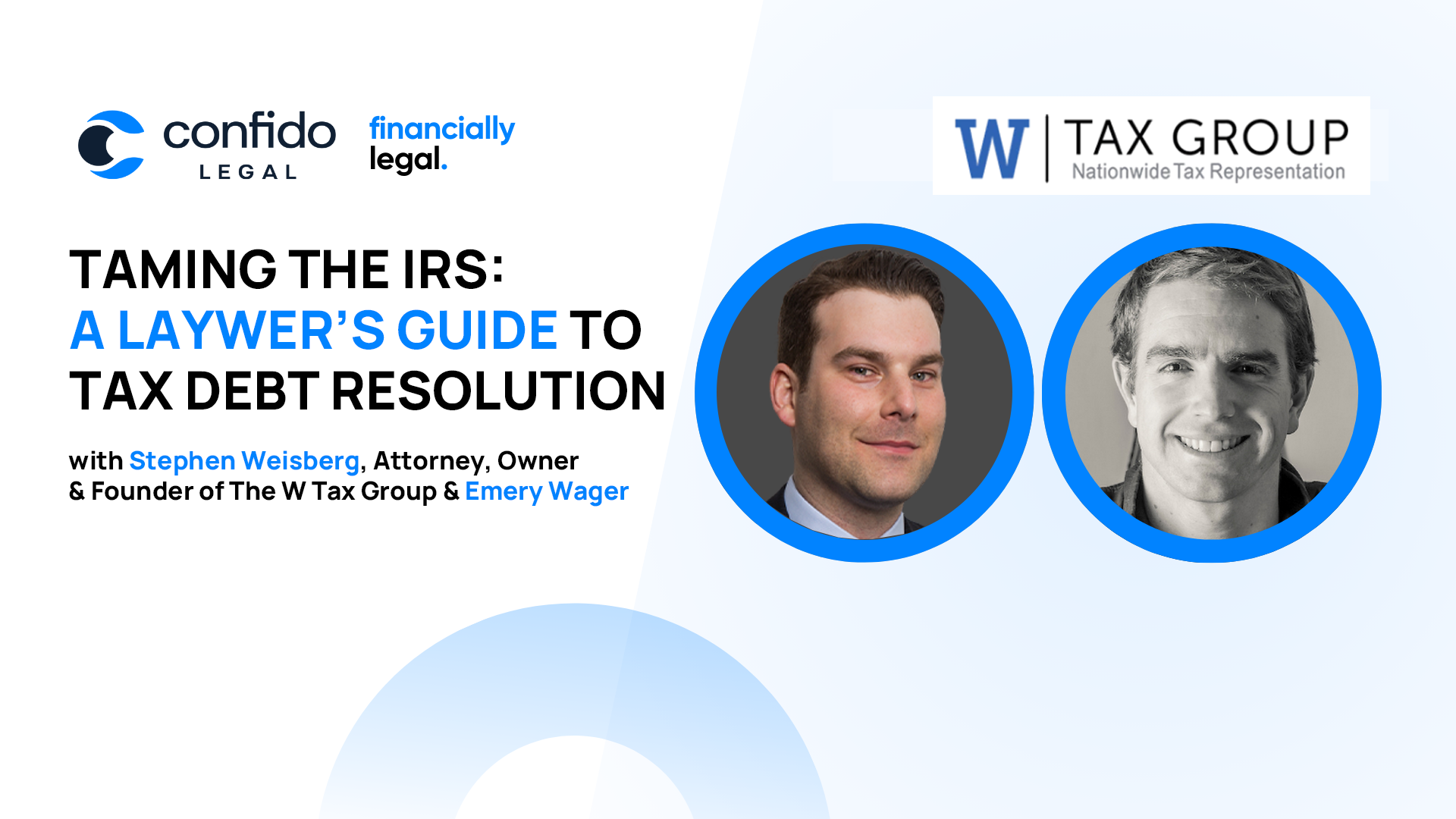What do you do when you owe money to the most powerful collection agency in the world? In this episode of Financially Legal, I sat down with Stephen Weisberg, a tax attorney who helps people navigate IRS tax debt. We discussed what happens when lawyers, particularly partners in law firms, get behind on their taxes, why it’s more common than you might think, and what options exist to fix the situation.
The Hidden Trap in Law Firm Structures
Most law firms are structured as pass-through entities, meaning the firm itself doesn’t pay income taxes. Instead, profits “pass through” to the partners, who report them on their personal tax returns. Sounds simple, right?
Here’s the problem: unlike W-2 employees who have taxes withheld automatically, partners are responsible for making quarterly estimated tax payments, and many don’t.
Stephen explained that it’s not uncommon for partners to underestimate what they owe, skip a quarter, or wait until year-end to catch up. While that might feel manageable in the moment, it can quickly snowball into penalties, interest, and IRS enforcement.
The IRS Doesn’t Knock First, It Sends Letters
Before the IRS starts levying bank accounts or garnishing wages, it goes through a formal notice process. That process usually looks like this:
- CP14 – Initial Notice: A bill showing the balance due.
- CP501 / CP503 / CP504 – Follow-Up Notices: These get progressively more urgent, but they aren’t the final word.
- LT11 or Letter 1058 – Final Notice of Intent to Levy: This is the critical one. The IRS must wait 30 days after sending it before taking collection action.
Stephen emphasized that responding during that 30-day window gives you leverage. If you miss it, you lose access to key rights, like requesting a Collection Due Process hearing.
So What Can You Actually Do If You Owe?
We talked through the four most common tax resolution strategies:
- Installment Agreement – Spread payments over time in monthly installments.
- Partial Payment Installment Agreement – Pay less than the full amount if you can’t afford it all.
- Currently Not Collectible (CNC) – Pause payments if you truly can’t pay anything right now.
- Offer in Compromise – Settle your debt for less than you owe, based on your inability to pay.
Each option has trade-offs, but the key takeaway was this: the sooner you act, the better your options.
Stephen’s Advice for Law Firm Partners
We closed the conversation with some simple, hard-earned wisdom:
- Make your quarterly payments. Waiting until the end of the year is a trap.
- Hire a tax attorney if you're in trouble.
- Address issues early. That’s when you have the most negotiating power.
Going Further
If you want to learn more or connect with Stephen Weisberg, visit https://www.wtaxattorney.com/ or https://www.weisberg.tax/. You can also connect with him on LinkedIn. To explore more conversations at the intersection of finance and the business of law, follow Confido Legal on LinkedIn and listen to upcoming episodes of Financially Legal.


